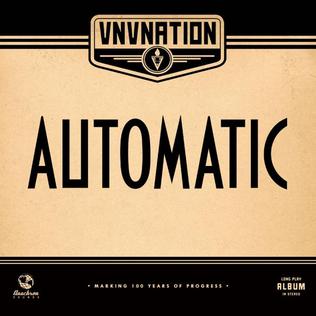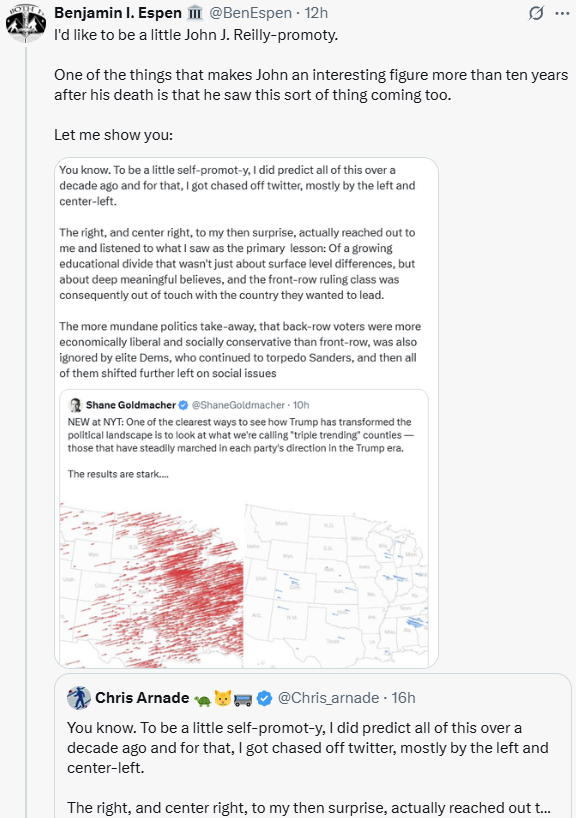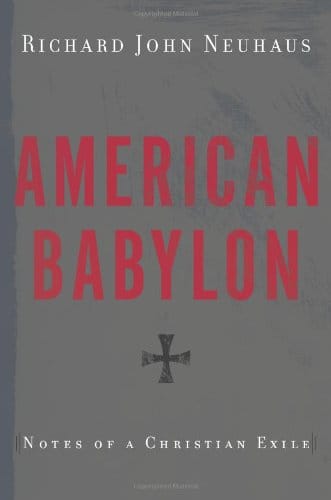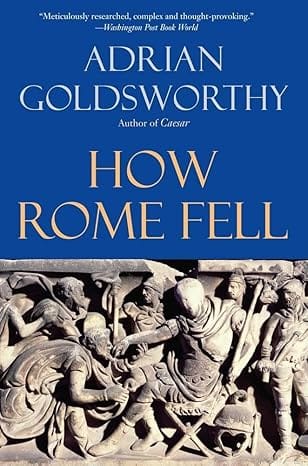The Long View: Twentieth Century The History of the World, 1901 to 2000 By J.M. Roberts

VNV Nation – Automatic
If I could pick a musical representation of the twentieth century, it might be VNV Nation’s album, Automatic. Ronan Harris has an ability to write lyrics that distill things to their essence, and the essence of this album is the twentieth century’s technological progress and scientific optimism. This isn’t the whole story of course, but we have plenty of pop culture about the nasty things. It is nice to remember the good parts too.
As for the book review, I didn’t actually get much out of it, probably because John J. Reilly didn’t either.
Here are the best two bits;
Roberts is probably correct that it is too early to write a history of the 20th century per se. It is also possible that my expectations for any book on this topic would be too novelistic, formed in large part from a century's worth of speculative writing about the future. Nonetheless, I cannot help but reflect that the century all those science fiction writers were so keen to describe is over, and what do we have to show for it? Maybe the narrative coherence of H.G. Wells's "Things to Come" is too much to expect of any history book.
There are three great stories that can be written involving the 20th century, only two of which could have been told as soon as the year 2000. One might be called "Grey's Twilight," after the British foreign minister who remarked, as the First World War broke out, that the lights were going out all over Europe. That story came to an end with the fall of communism in 1989. Another story might be The Decisive Lifetime. The theme in that period, running from roughly 1860 to 1945, would be about the triumph of liberalism within western civilization. The third story is about the place of the 20th century within modernity as a whole.
Twentieth Century
The History of the World, 1901 to 2000
By J.M. Roberts
Viking (Penguin Putnam), 1999
US$39.95, 905 pages
ISBN: 0-670-88456-1
Back in the 20th century, the US Department of Agriculture sometimes used to distribute slabs of surplus butter to old people. (I know this because, one way and another, my family came into possession of more than one of them. We had a large family, and they did us for a month.) These slabs were about the same size as this block of a book. They also had the same creamy, undifferentiated texture as its prose. Other similarities are that the butter and the book were both probably well meant, but neither was very nutritious.
J.M. (John Morris) Roberts is a former Warden of Oxford's Merton College. As his recent History of the World and History of Europe prove, he is neither a stupid man nor a bad writer. He reminds us on more than one occasion that it is really too early to be writing a history of the 20th century, since we will not have anything like a usable perspective for generations to come. (He also labored under the handicap that by no stretch of the imagination could the century be said to have been over by the time the book went to press, though he gets high marks for recording events quite late into 1999.) Certainly his "Twentieth Century" is very readable, and often insightful. Its failings are two: it is oddly factless, and it is too cautious about connecting the dots to make a sustained narrative.
Roberts is predictably good when he discusses ordinary diplomatic history. He notes, acutely, that the historiographical fashion for "history from below" has little application to the final years before the First World War, since the outbreak of the war really was the work of Europe's foreign ministries and general staffs. Regarding that war, Roberts suggests that the outcome of the Dardanelles campaign, when the Allies failed to take Constantinople and so relieve Russia through the Black Sea, was the decisive event of the whole century. It was largely for that reason that both the Czarist and the ephemeral social-democratic Kerensky regimes in Russia collapsed, to be followed by 70 years of Bolshevism. Without the menace and lure of the Soviet Union, it is hard to see how either fascism or the Second World War could have occurred in anything like the forms they did, much less the Cold War.
There are two great trends that Roberts sees as characteristic of the 20th century. The first was the end of European history as a largely autonomous story. In 1901, most of the world was ruled by white people from a small number of European capitals. Within fifty years, this was no longer the case, and Europe itself was divided between two power-blocks whose centers lay outside it. (As always, Roberts cannot quite decide whether Russia is a European country, but then neither can the Russians.) The century as a whole, Roberts notes, falls rather neatly into two halves defined by this "end of European history." The most important thing about the 20th century, however, is that it was the time when all the planet's local histories finally merged into a universal history. This is new, and it is reason enough to accord the period something like the sense of unique importance that the people who lived in it claimed for themselves at the time.
The previous two paragraphs give you all the conceptual structure that "Twentieth Century" has. This might have provided the backbone for a good, extended essay. In fact, there are several good essays in "Twentieth Century" that can stand on their own. What they cannot do is stand together. Far too much of the book is page after page of dateless explanations about trends in economics or Chinese politics or what not. There are memorable truisms, such as, "To extend the idea of what is possible is to change the way people think as well as the way they act," and "What this means for organized religion, except that it means something, is almost impossible to say." Writing like this might be understandable in a book with a title like "Neanderthal Culture: 300,000 to 100,000 BC." To use this level of abstraction is writing about a carnival of a century, especially when you have lived through most of it yourself, is to indulge an unnecessary austerity.
Judging from this book, there don't seem to have been many people in the 20th century. There were no interesting ones, aside from Winston Churchill. The names of usual-suspect politicians are given, as well as, awkwardly, those of a small circle of scientists. That just about exhausts 20th century biography. As far as I can tell, there were no artists or philosophers after 1901. There were also no influential philosophical ideas, except for the great gasbags of Marxism and Freudianism and Darwinism. It may or may not be significant that the century seems to have had a singular dearth of notable historians.
Even within his narrow parameters, Roberts has odd notions about who merits a mention. Maybe only American chauvinism makes me wonder how anyone could write an essay on the origins of rocket technology and not mention Robert Goddard. It is simply mystifying, however, to read an extended discussion of the influence of Cuban Marxism in Latin America, a discussion that, moreover, alludes to the failed Bolivian insurgency in the 1960s, and still not find any mention of Che Guevara, who died in the Bolivian uprising.
Roberts is probably correct that it is too early to write a history of the 20th century per se. It is also possible that my expectations for any book on this topic would be too novelistic, formed in large part from a century's worth of speculative writing about the future. Nonetheless, I cannot help but reflect that the century all those science fiction writers were so keen to describe is over, and what do we have to show for it? Maybe the narrative coherence of H.G. Wells's "Things to Come" is too much to expect of any history book. Still, surely something along the lines of Paul Johnson's "Modern Times" is not too much to ask for? (The original edition, which covered only the 1920s to the 1980s, is still the best.)
There are three great stories that can be written involving the 20th century, only two of which could have been told as soon as the year 2000. One might be called "Grey's Twilight," after the British foreign minister who remarked, as the First World War broke out, that the lights were going out all over Europe. That story came to an end with the fall of communism in 1989. Another story might be The Decisive Lifetime. The theme in that period, running from roughly 1860 to 1945, would be about the triumph of liberalism within western civilization. The third story is about the place of the 20th century within modernity as a whole. That story may not be writable for another 100 years, though publishers may well be tempted to jump the gun so as to get it on the market first.
Copyright © 2000 by John J. Reilly
Support the Long View re-posting project by downloading Brave browser. With Both Hands is a verified Brave publisher, you can leave me a tip too!



Comments ()